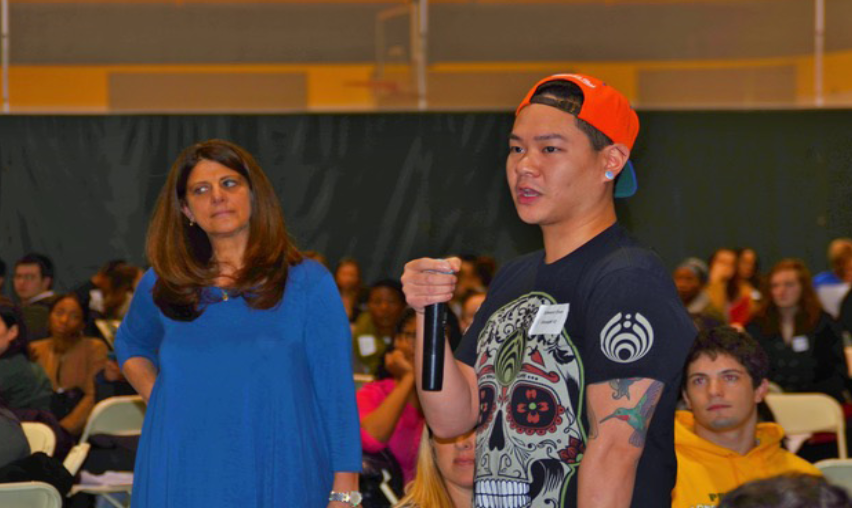By Angelique D’Alessandro
Assistant News Editor
Faculty from the School of Health Professions and Nursing hosted their second annual “Interprofessional Education Learning Collaborative” on Tuesday, April 3 during common hour. The event, held in the Pratt Recreation Center, was meant to create connections between health science students from different majors. Over 600 people attended the event, which consisted of speeches and a case study that students could collaborate on and discuss.

Students attended the interprofessional student event
“Team-based education will help the students succeed in their jobs,” Linda Vila, assistant professor of health care and public administration, said. “Students from all different health professions are here today learning about interprofessional education.” In her speech at the event, Vila discussed the importance of ethical decision making to the health profession. She outlined the “big four ethics principles” that healthcare workers must use every day. These four principles are autonomy, beneficence, non-malevolence and justice, which equate to “doing no harm” to patients, according to Vila.
Vila discussed empathy, which she said is “putting yourself in the position of another.” To Vila, empathy is “the mark of a top-notch professional” in the healthcare field.
Kayla Halper, a freshman nursing major, found the event helpful. “This is a collaboration of all different health science majors,” Halper said. “We can see how our different roles will interact in a real-life situation.”
Casey Mannix, a senior social work major, also discussed the benefits of the event. “I interned at a nursing home, so it’s important to understand the different aspects of who you might be working with in the future,” Mannix said. “I want to work in a hospital setting, so I’ll be working with people from all different disciplines.”
The event included a case study, which discussed ethical principles and hands-on collaboration between students.
Brianna LoBianco, a junior biomedical science major, said the event was engaging. “Students were grouped together, varying in different health profession majors. It was nice to see how well we were able to discuss our own thoughts on the case and come together to think of a proper plan for the patients,” LoBianco said. “I enjoyed the case study itself because it is applicable to what I will be doing in the real world someday.”
Dr. Lori Knapp, Post vice president of academic affairs and a former professor of nursing and acting dean of the School of Health Professions and Nursing, said that the health profession has become a collaborative field. “We know that mutual respect and understanding make a difference in how we practice,” Knapp said.
“[In healthcare] you can’t just talk about what you know, you need to talk about things like values and ethics,” Knapp said. “Up until 25 years ago, if you picked a profession, you want out and did your job and that was good enough. We’ve learned now that we do a better job when we work together.”




Be First to Comment